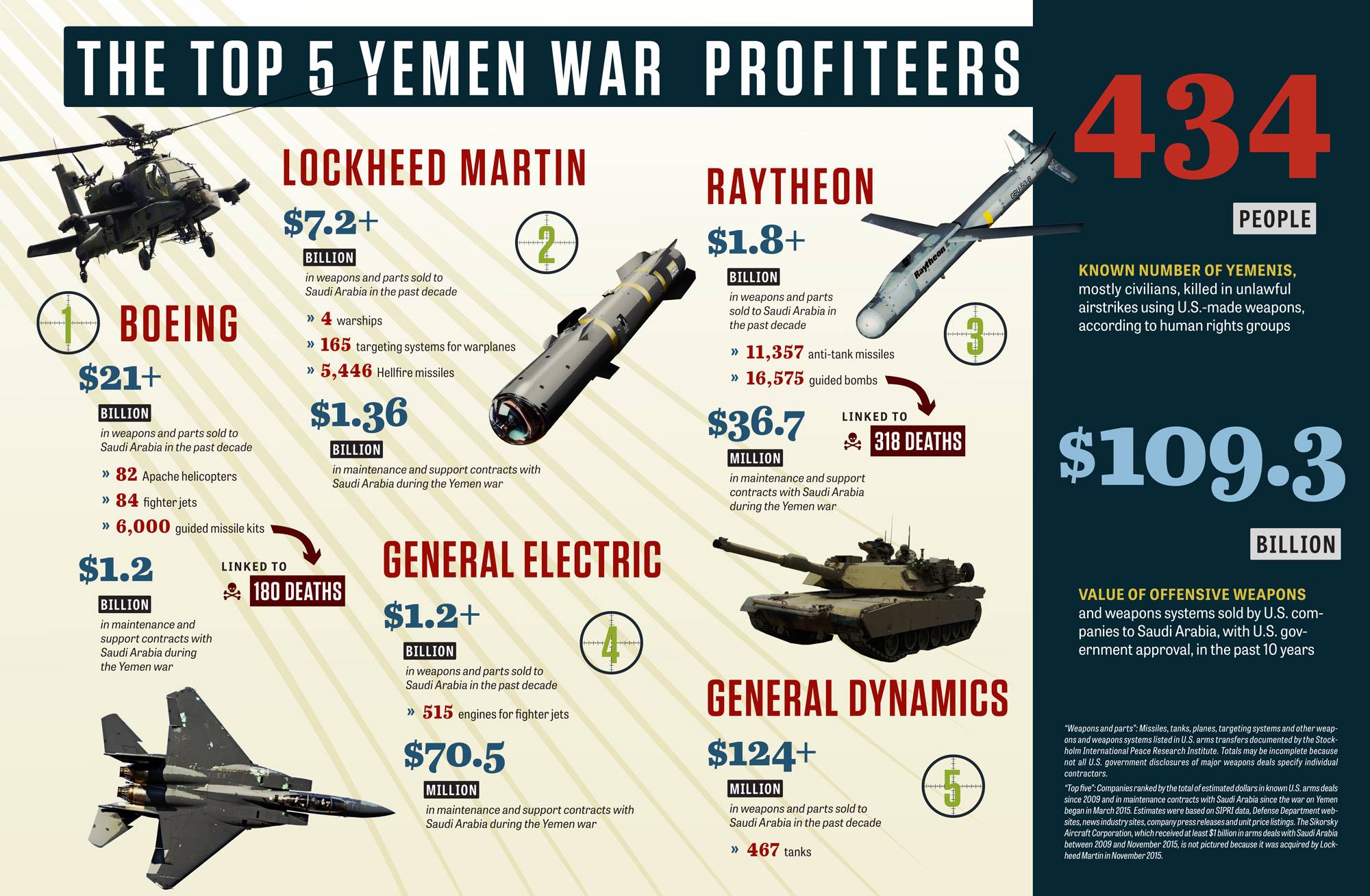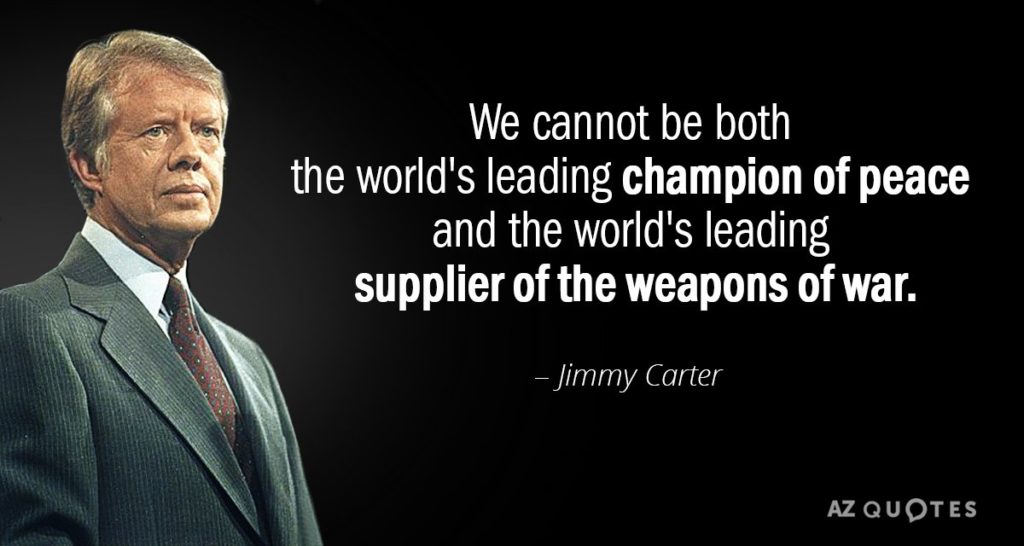
How Private Contractors Hide the Real Costs of War
William D. Hartung / Inkstick Media
(January 12, 2022) — It’s well known that waste, fraud, and abuse were widespread among contractors working for the US government in Iraq and Afghanistan, but the negative consequences of the heavy reliance on contractors to help wage wars go well beyond that to the question of whether and how the United States wages war.
The issue of waste in America’s endless wars should certainly not be ignored, given its immense costs to taxpayers. As early as 2011 — ten years into the Afghan war — the congressionally-mandated Commission on Wartime Contracting estimated that there had already been between $31 billion and $60 billion in waste related to contracting in the two war zones.
There has been no comparable analysis since, but it’s safe to say that there have been tens of billions more in waste — including criminal fraud — in the most recent ten years of war. The Special Investigator General for Afghan Reconstruction has produced scores of reports documenting waste in Afghanistan, even as it has helped convict 160 companies and individuals of fraud and saved taxpayers $3.8 billion in the process.
All of this occurred in the context of the record surge in Pentagon spending that accompanied and was publicly justified by what was originally known as the Global War on Terror. As I noted in a joint report of the Center for International Policy and the Brown Costs of War Project published in September 2021, the post-9/11 surge in Pentagon spending resulted in $14 trillion in Pentagon spending from 2001 to 2020, up to half of which went to contractors.
Beyond wasting billions,
private contractors are enablers of war
Among the report’s findings were that the biggest beneficiaries by far were the top five weapons contractors, namely Lockheed Martin, Boeing, Raytheon, General Dynamics, and Northrop Grumman. These five companies alone have split $2.1 trillion in contracts since 2001.
To give some sense of scale, Lockheed Martin alone received $75 billion in Pentagon contracts in 2020, which was more than one and one-half times the combined budgets of the State Department and the Agency for International Development. If the Biden administration is truly to put diplomacy first, this extreme militarization of our budget must be corrected.
So, war and preparations for war are big business, on an almost unimaginable scale. But the use of contractors has an even more pernicious effect: It makes war more likely and makes it easier to extend wars long beyond the point at which they should have been ended. In short, the use of private contractors enables war.

HOW WE GOT HERE
The United States has used private contractors going all the way back to the Revolutionary War, and an estimate cited in the Wall Street Journal indicates that there was roughly one contract employee for every seven troops during World War II. During the Vietnam War, there was an increase in the use of contractors to maintain increasingly complex weapons systems alongside troops in the field, as well as the use of private air transport companies like Air America.
The real surge in the use of contractors, however, came at the end of the Cold War, when then-Secretary of Defense Dick Cheney commissioned a study by Halliburton assessing whether it would be possible to privatize all major support services for US troops overseas, with a special focus on areas of conflict. Halliburton said yes, and the Pentagon promptly moved to contract out these services.
When he left government, Cheney went on to serve as CEO of Halliburton, in a blatant example of the conflicts of interest inherent in the revolving door between government and industry. And once Cheney became vice president in the George W. Bush administration, it was Halliburton’s KBR unit that made tens of billions of dollars provisioning and supporting US troops and the US rebuilding effort in Iraq. In short, Halliburton was good to Cheney, and the government Cheney helped run was good to Halliburton.

CONTRACTORS AREN’T WORTH IT
It would have been hard for the US military to sustain two decades of war in Iraq and Afghanistan without the use of contractors, but that’s part of the problem. The United States should not seek to repeat the mistakes of those two wars, which the Costs of War Project at Brown has documented cost a total of 8 trillion dollars, the deaths of thousands of US troops and hundreds of thousands of civilians in the war zones, not to mention physical wounds and post-traumatic stress syndrome on hundreds of thousands of troops who served in those conflicts.
The results are in — a sectarian regime in Iraq helped create the conditions for ISIS to make major territorial gains, and Afghanistan is now run by the Taliban. The consequences of these ill-conceived wars will be with us years to come. If we don’t want to be ripped off by contractors, we shouldn’t fight the unnecessary wars that they help enable.
Another downside of heavy reliance on contractors is that they disguise the full costs of war. Casualties among contractors don’t spark the same public concern as casualties among uniformed troops, even though in Afghanistan there were thousands of contractors killed. This is evident from the lack of press coverage on the topic, as opposed to the posting of photos and listing names of troops killed in the New York Times and other publications like the Military Times.

As the US has fought wars, the use of private contractors has increased. Private contractors do everything from laundry and food supply, building military bases, maintaining weapons systems, to training police and military forces. At the peak of contractor involvement in Iraq and Afghanistan, there were 155,000 contractor personnel in the two war zones, more than the 145,000 uniformed troops there. Ultimately, hiding the full costs of war, from the number of casualties to the true size of the force, makes unnecessary conflicts more sustainable.
All of this suggests that even as we strive to end all of America’s open-ended wars, the Pentagon should scale back its use of private contractors, not only to curb waste, but to make the costs of war more transparent and make the Pentagon more accountable to the American public.
William D. Hartung is a senior research fellow at the Quincy Institute for Responsible Statecraft.
Posted in accordance with Title 17, Section 107, US Code, for noncommercial, educational purposes.